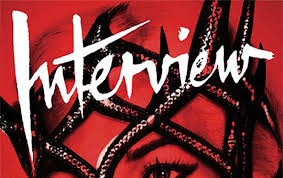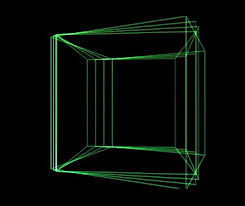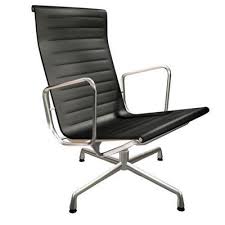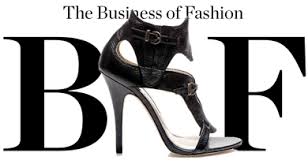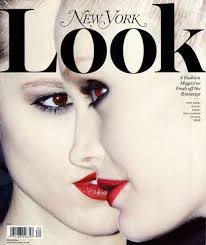 Marat Mikhailovich Safin (born January 27, 1980, in Moscow) is a former World No. 1 Russian ATP tennis player. He is the older brother of current World No. 1 WTA player Dinara Safina. They are the first brother-sister tandem in tennis history to both achieve No. 1 rankings.
Marat Mikhailovich Safin (born January 27, 1980, in Moscow) is a former World No. 1 Russian ATP tennis player. He is the older brother of current World No. 1 WTA player Dinara Safina. They are the first brother-sister tandem in tennis history to both achieve No. 1 rankings.Safin began his professional career in 1997, and held the No. 1 world ranking for a total of 9 weeks between November 2000 and April 2001. He won his first Grand Slam title at the 2000 U.S. Open after defeating Pete Sampras, and won the 2005 Australian Open, defeating Australian Lleyton Hewitt in the final. Safin helped lead Russia to Davis Cup victories in 2002 and 2006. Despite his dislike of grass courts, he became the first Russian man to reach the semifinals of Wimbledon at the 2008 Wimbledon Championships. At the time of his final Grand Slam appearance at the US Open on 2 September 2009, Safin was No. 61 in the official world men's tennis rankings.
.jpg) FYI
FYISafin describes himself as a non-practicing Muslim.
He speaks Russian, English, and Spanish.
His parents are former tennis players and coaches.
His younger sister, Dinara Safina, is a professional tennis player and silver medalist at the 2008 Olympic games in Beijing.
Safin held the No. 1 ATP (Association of Tennis Professionals) ranking for 9 weeks during 2000 when he won his first Grand Slam tournament at the US Open, becoming the only Russian player in history to win this tournament, by defeating Pete Sampras in straight sets.
After ending Roger Federer's 26-match winning streak (in 2005) over top-10 players, Safin described the match as "a brain fight."
Safin has won five ATP Tennis Masters Series titles during his career. His first was in 2000 when he won the title in Toronto, Canada. He holds a record-tying three (2000, 2002, and 2004) wins in Paris, France, and one in 2004 in Madrid, Spain.
Safin started the 2009 season by playing in the Hopman Cup event in Perth with his sister, Dinara Safina. He arrived at the event sporting a bandaged right thumb, two black eyes, a blood-filled left eye, and a cut near his right eye, all suffered in a fight several weeks earlier in Moscow.
Safin is known for his emotional outbursts during matches, and has smashed numerous rackets. Safin is estimated to have smashed 48 racquets in 1999. As of 2005, Safin estimated that he has broken about 300.
Lack of consistency has been described as Safin's ultimate weakness, since 2005.
Safin has had quite a few relationships with famous Russian women.
Career prize money: 14,192,814 USD [Wikipedia]
 Marat Safin Bows Out of Last U.S. Open in First Round
Marat Safin Bows Out of Last U.S. Open in First RoundNEW YORK (AP) -- Marat Safin strutted off the Grand Slam stage with little of the sound or fury that accompanied so much of his combustible career.
No postmatch pomp-and-circumstance for the two-time major champion and former No. 1-ranked player. No on-court interview. No bow to the crowd. And for the record: no broken rackets.
When Safin finished losing meekly to Jurgen Melzer of Austria in a fairly uneventful 1-6, 6-4, 6-3, 6-4 first-round exit at the U.S. Open on Wednesday, the big Russian simply collected his things and strode away with a quick wave.
Looking for some sentimentality? Not even a trace.
"It's OK. It's the end. So, just, it's the last one. Could have been better ending, but still OK," Safin said. "I don't care about losses anymore."
The 29-year-old Safin is retiring at the end of the season, so this trip to Flushing Meadows marked his last Grand Slam tournament. It's a fitting site for his finale: Safin burst onto the scene by upsetting Pete Sampras to win the 2000 U.S. Open.
He called that victory "just a miracle for me."
"I really didn't believe I could get anywhere closer to the final of a Grand Slam. And then, after beating Sampras, I never really understood what happened," Safin said. "It was difficult, because I was 20 years old. I wasn't ready for this, so it's really difficult to understand it. ... I wasn't prepared."
Safin certainly gained a reputation for enjoying his status as a well-paid and popular sports star. Some say he frittered away the talent spread around his 6-foot-4, 195-pound frame -- those powerful serves and groundstrokes, the tremendous court coverage.
He reached No. 1 in November 2000, before injuries and other issues dropped him from the top rather swiftly. Safin lost two major finals before adding a second Grand Slam title at the 2005 Australian Open.
But that would be it. He would never win another title of any sort, major or otherwise. [...]
 His departure deprives tennis of one its more outlandish and outspoken stars.
His departure deprives tennis of one its more outlandish and outspoken stars.As Melzer put it: "I don't watch a lot of tennis; I have a lot of tennis in my life. But when Marat played, I sat down and watched, because it was something you don't see from the other players."
That's for sure. This is a guy, after all, who once celebrated a great shot at the French Open by grabbing his white shorts and tugging them down to his thighs.
Safin was penalized a point for that -- he also was docked $500 for throwing a racket in the same match -- then later ranted: "All of the people who run the sport, they have no clue. It's a pity that the tennis is really going down the drain. ... They do everything possible to, you know, just to take away the entertainment -- 'You're not allowed to do that. You're not allowed to do this."' [...]
 The plan is to wrap things up at the Paris Masters in November. As for what comes after that, Safin won't say -- other than that he wants to get away from the world of tennis.
The plan is to wrap things up at the Paris Masters in November. As for what comes after that, Safin won't say -- other than that he wants to get away from the world of tennis.No TV job for him.
"I'm different than another person who wants to lay back and do nothing for rest of the life and talk nonsense on ESPN, talk about my match against Sampras," Safin said. "I will not do that. I want to achieve something else."
When asked about being the opponent in Safin's Grand Slam goodbye, Melzer used the phrase, "if he really retires."
Why the word "if"?
"With Marat," Melzer said, "you never know." END
 QUOTES
QUOTESYou want to sit in the five-star hotels? You have to get here and, believe me, it's a long way. Years and years of working hard and traveling the world, and shitty hotels with no TV and no bathroom. I did all this. Going to a cafe and eating off the $5 menu. You start with $100 a week, maybe. I was down to nothing sometimes. I had to make some good results to make money. Now you come to five-star hotels, and it's, "What do you want? Coke? Whiskey?"
The mentality of Russians, it's very strange. Actually, very strong on the court. We know what we want and we fight.
When I look at a dollar note, I only see a picture of George Washington on a piece of paper. Money is only money. It makes the life easier, but I don't feel sexy or mighty because of that.
When I was ranked 40 in the world, nobody cared about me. I started to win matches because I had no pressure. Now everybody's expecting things from me. Every time I have to win, I have to win, Safin has to win, Safin, Safin, Safin, Safin, Safin, Safin, Safin! Then one day I sat down and said no, no, no. If it's going to be like this I cannot play. When I have so much pressure I don't enjoy tennis and I feel bad. So I tried to calm down, tried not to make such a big deal of it, even if I don't win a tournament this year.
I am not a singer or a rock star. Tennis is tennis. If you want to see a clown, go to a circus.
To be honest, sometimes I really don't feel like hitting the ball on the court - I am so lazy.
I have never been so humiliated in my whole life. It was a terrible feeling to hear the fans whistle and boo me on the court. I was trying my best, chasing every ball, fighting for every point. I have had enough. I wanted to quit right there after the first set as I couldn't bear to hear them shouting insults at me. I just couldn't take it any longer.
Last year,the crowd hissed me, here, at home, because I had difficulties in finding my game. They put my head underwater until I drowned myself.
I don't need someone telling me what to do all the time. I don't like it when coaches talk too much, try to teach you too much. If they talk to you from 9 a.m. to 10 p.m. it drives you crazy.
Right now, I'm impressing myself with how badly I'm playing.
I'm not like Stefan Edberg; I'm not a robot. I'm an individual who gets mad. If I break a racket, who does it really hurt?
Today I break racquets, for tomorrow we die.
I can't live in the United States - I'd kill myself. It's not my style of life, it's not the country for me. They don't even let me drink a beer in this country. I was born in Moscow. Then I went to Spain and my life is like a festival everyday.
It would be a pity to spend probably the best years of my life just living with tennis. It would be the biggest mistake of my life.
 Safinator.com
Safinator.com


